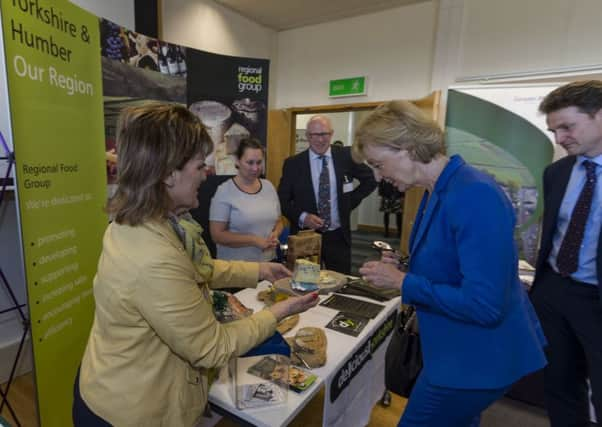Alan Mak: Yorkshire can be leader of hi-tech tiger economy


The factory is reportedly one of the most efficient in Europe and employs 27,000 people across the North of England in its supply chain. The industrial North has long been the backbone of our country, stretching back 250 years to the early days of steam when textiles produced in Yorkshire and surrounding counties were exported globally on ships made from Sheffield steel.
In a new age of scientific breakthroughs, with advances in artificial intelligence, driverless cars, drones, 3D printing, advanced robotics being announced almost daily, the Nissan works is not the only flagship British factory using technology to increase productivity massively.
Advertisement
Hide AdAdvertisement
Hide AdA growing group of British entrepreneurs and scientists from home and abroad have been leading this drive, something the Government has recognised with a growing level of investment in science and technology.
In what has been dubbed the Fourth Industrial Revolution (4IR), the Government should look to the regions to help drive a turbo-charged science based “tiger economy”.
With Local Enterprise Partnerships (LEPs) already established across the country, these can be used to create dedicated regional investment funds for 4IR businesses to drive growth outside of London and the South East. The North Yorkshire and East Riding LEP is already leading the way in this area, with its £10m Bioeconomy Growth Fund and a stated ambition of making York a hub for innovation, research and technology.
The establishment of a Food Enterprise Zone in Malton, and with major investments in the National Agri-Food Innovation Campus at Sand Hutton, mean that Yorkshire and the Humber is now a thriving centre of successful innovation for the bioeconomy. Additionally, the £25m public sector-backed BioVale scheme in York is already well underway.
Advertisement
Hide AdAdvertisement
Hide AdIt is a template, that if replicated across the country, would encourage the adoption of 4IR technologies across the country and spread growth outwards to all nations and regions in the UK, giving 4IR entrepreneurs and innovators a focal point for funding.
As Yorkshire becomes a global leader in food manufacturing, agri-tech and bio-renewables, each region of the UK needs its own area of excellence, acting as regional test-beds for 4IR products and services. The Government’s announcement that driverless car projects will take place in Bristol, Greenwich, Milton Keynes, and Coventry, is a positive development.
Britain should also take early opportunities to test 4IR innovations, including the use of unmanned aerial vehicles (UAVs) and data-driven AI management systems in other transport infrastructure. Amazon has already partnered with the Civil Aviation Authority to explore the possibility of using drones to deliver parcels direct to homes and businesses, cutting transport time down to under an hour.
Just as Northerners such as Robert Stephenson, who built the Rocket, and the “Railway King” George Hudson developed a transport legacy that benefited the whole country, the 4IR will need continued investment in digital infrastructure. This should include a new phase of the fibre-optic broadband rollout designed to target the copper bottleneck between street cabinets and our homes and businesses (fibre-to-the-premises), as well as 5G mobile internet and support for other networking technologies.
Advertisement
Hide AdAdvertisement
Hide AdThe Government has already made excellent progress in this area with £13bn of transport investment, including that on high speed trains, across the North, as well as promising that 95 per cent of the country will have access to superfast broadband by 2017.
This week, I launched a policy report with the Free Enterprise Group of Conservative MPs, backed by the Institute of Economic Affairs.
Masters of the Revolution sets out twenty practical recommendations, which I hope Business & Industrial Strategy Secretary Greg Clark will take on board. From multi-national businesses such as Nissan to entrepreneurs developing cutting edge 4IR technology, we need to create a pro-enterprise environment that welcomes manufacturers, tech firms and pharmaceuticals.
As Yorkshire leads the way, the rest of the country must follow.
Advertisement
Hide AdAdvertisement
Hide AdWith its investment in the bioeconomy to the progress being made in improvements to digital infrastructure, this region can lead an industrial renaissance and an explosion of tech based growth.
Alan Mak is the Conservative MP for Havant and chairman of the APPG for Entrepreneurship and the 4IR